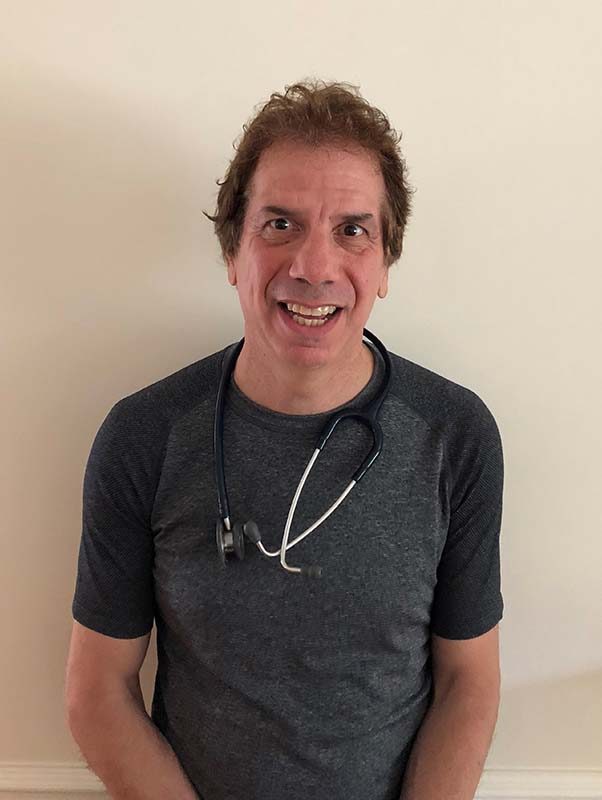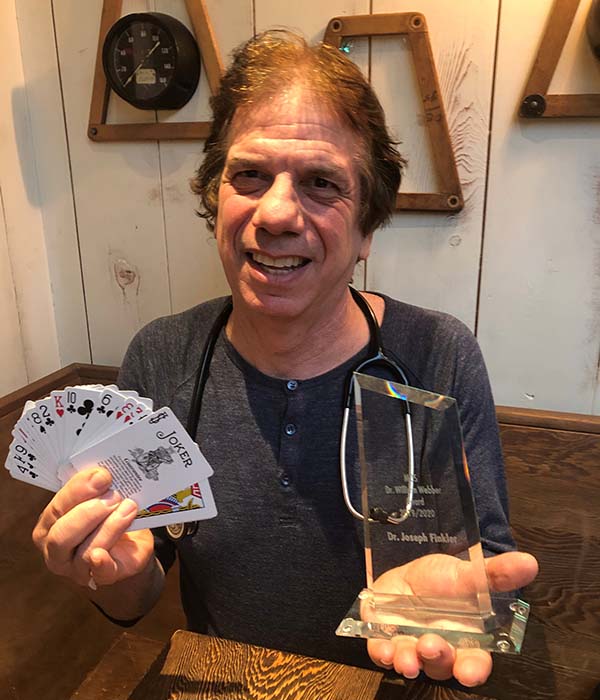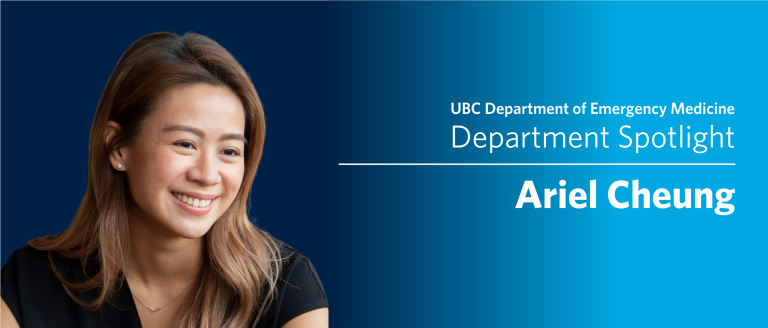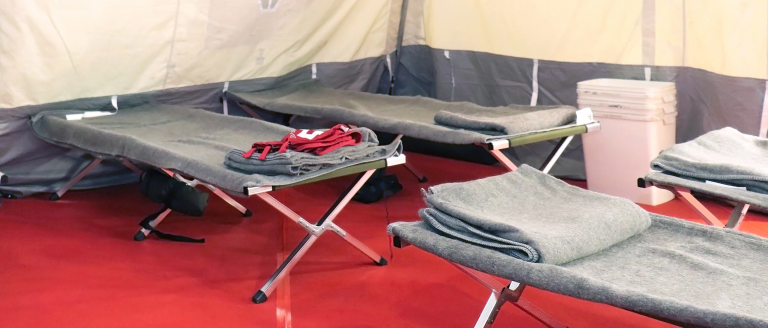
JOSEPH FINKLER
CLINICAL PROFESSOR
Site:
Vancouver – St. Paul’s Hospital
Dr. Joseph Finkler is a clinical professor with the UBC Department of Emergency Medicine, an emergency physician at St. Paul’s Hospital, and the recipient of the 2020 Dr. William Webber Award for his commitment to the medical student community.
Can you share a little bit about your educational background and journey, and how you got to where you are today?
My journey into medical school and, ultimately, working in the emergency department at St. Paul’s Hospital is long and winding. With an interest in human biology, I set out to Queen’s University more than four decades ago and completed a BSc (Honours) program in Life Sciences. With no offer of admission to a Canadian medical school and no job prospects either, I decided to pursue an MSc in physiology at Queen’s.
Attending medical school remained elusive. I ended up working as a teaching assistant in the Department of Biology and later as a research assistant in the Department of Anaesthesia at Queen’s for a couple of years.
One of my buddies from grad school encouraged me to join him in medical school at St. Andrews University in Scotland. Even though I did not play golf, I sent off my application, borrowed more money from my parents, and departed. During my sojourn in Scotland, I snagged an interview at McMaster University and later an offer of admission. After my time at McMaster University, I did an internship in internal medicine at Mt. Sinai Hospital in Toronto.
It turned out internal medicine was not my thing. I tried my hand at rural medicine with a high school buddy in Kirkfield, Ontario. In addition to office medicine, I worked in the emergency department at Ross Memorial Hospital in Lindsay, Ontario. This was probably the most exciting aspect of my practice, although I felt hugely unqualified.
The isolation and dreary winter in Ontario made my wife and I yearn for a life on the coast and the BC mountains. Within a year, we packed up and drove out to Vancouver.
Before the College would grant me a permit to practice. I needed to get some post-graduate experience in surgery, obstetrics, and gynaecology. The only means to do this was to join a surgical residency programs—I picked obstetrics and gynaecology. While doing consults at St. Paul’s I got a glimpse of life on in the emergency department. It seemed like these docs were having the most fun. With the help of the program director I was able to convert my post-graduate years into a family practice residency equivalent, and I joined the CCFP-EM program at St. Paul’s Hospital.
What inspired you to teach Emergency Medicine?
Teaching has always been a passion of mine. I think it dates back to my days as grad student and working as demonstrator in the labs. When I was at McMaster University, I encountered many physicians whom I admired because they were great teachers and clever clinicians, and they were kind to medical students. Some of them ran underground courses (like the general surgery Sunday school) and some even invited us into their homes. This had a big impact on me.
I was involved in teaching medical students as a resident, and when I finished the emergency medicine program I got involved in the UBC MD Undergraduate Program. Since 1999, I have served as a tutor for the pre-clinical years. A few years later, I began serving as a mentor. In the intervening years, I have had the privilege of interacting with many talented medical students. Some have become colleagues, and some have become friends. One even operated on me.
You were awarded the 2020 Dr. William Webber Award by UBC MD undergraduate students. Can you tell us about this?
Presumably, the Dr. William Webber Award is in recognition for my many years serving and supporting UBC medical students. I think that this may have come about as a result of the many connections that I have made through tutoring, lecturing, and engaging with them through shadowing experiences. I am humbled by this award.
What impact would you like to see your work have on patients, communities and society at large?
I find it difficult to gauge the impact my work. Some of the problems that we face in the emergency department at St. Paul’s are so complex or disturbing. I subscribe to the drop in the bucket philosophy, which means trying to do what I can one patient at time by being kind and harnessing the human and technological resources of the health care system to deliver the necessary care.
What excites you most about your work? What are you most proud of?
Not every day in the emergency department is exciting. Nonetheless, the work is humbling and there are always new things to learn and opportunities for skills enhancement.
What is one piece of advice that you would give to current trainees?
I am no oracle, but the best advice I could give anyone seeking a career in emergency medicine is firstly, pick a good life partner, and secondly, seek out an emergency group that is filled with vibrant and kind people. Everything else will fall into place if you are well supported when you are at home and when you are in the ED.
When you’re not working, where can we find you?
I am a moving target. Sometimes I am doing chores outside my house. At other times, I am in my home office doing paperwork related to my teaching and other medical endeavours. Before the pandemic, I was doing spin and interval training classes. Now I get out on my new hybrid bike and am still looking for a gym. If I am not scheduled to work on a weekend, my wife and I will often escape to the Sunshine Coast. Now that my kids are grown, they have become great company for biking and going to craft breweries.
And did I mention that I am addicted to magic?



